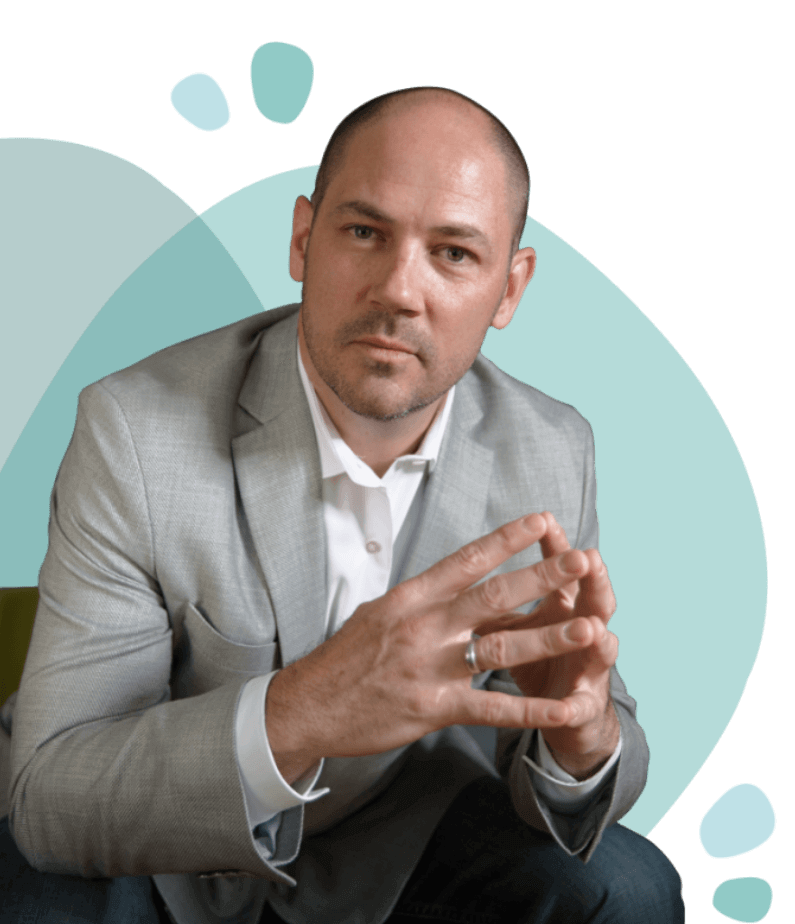Most people with Adrenal Fatigue have been suffering from its debilitating effects for months, sometimes years. It’s not just a passing illness or a condition that will run its course.
I have seen thousands of patients over the past 20+ years. I have dug my heels into researching every aspect of the adrenals and fatigue. I’ve discovered that while no two Adrenal Fatigue patients are the same, most of them share 5 or more of these 9 characteristics.
#1 They are researchers.
Adrenal Fatigue patients are responsible enough to have educated themselves about their health challenges.
Many of my patients find me after having been mistreated and mishandled by other “adrenal specialists,” internet personalities, or the mainstream medical establishment.
Those who suffer from Adrenal Fatigue have usually spent years and thousands of dollars on treatment plans and methodologies, only to notice temporary and partial benefit, at best, with the occurrence of relapse being almost guaranteed.
Sooner or later, they realize that chasing symptoms, such as brain fog, weight gain, insomnia, fatigue, and depression, has only led to relapse after a short window of relief. They suspect there must be something to fix the underlying cause of the problems, and they’ve spent many a night staying up until 2 a.m. trying to find what it is.
After months or years of no answers, it’s no wonder they are fans of due diligence.
#2 They are go-getters.
So many of my patients have “Type-A” personalities and above-average intelligence. They may also be perfectionists and overachievers.
But they’re frustrated because they’ve been sidelined by this condition. They want to work, socialize, go to a movie, or take their kids to soccer practice. It’s just not possible, not when they’re absolutely exhausted.
Adrenal Fatigue patients also tend to “overthink.” This is connected somewhat to the worry and fear that they feel daily. They develop a drive to overthink as a way to exert control over their environment or to find meaning in their symptoms, or to their life in general.
It’s unfortunate, but that overthinking often slows down the healing process. To be able to turn that off helps.
I know, easier said than done.
#3 They’ve been prescribed antidepressants.
Many adrenal patients turn to antidepressant and anti-anxiety pharmaceuticals out of desperation. Transient relief is better than no relief at all, even if they know it’s not the true solution.
Often, they end up on these medications because their well-meaning physicians could find no abnormality for the various symptoms with which my patients present. The next logical—though inaccurate—step for these physicians is basically to tell the patient that “it’s all in your head.”
It’s not all in their head.
We can easily tell the difference between a depressed person and a patient with Adrenal Fatigue with one question: “What would you do if you felt better?” A clinically depressed person will most likely have no idea. The Adrenal Fatigue patient will have a list of several goals, sometimes dozens. They’re just too exhausted to accomplish them.
Note: This is not to say that Adrenal Fatigue patients do not suffer periodically from depression. Honestly, it would be surprising if they didn’t.
#4 They care “too much.”
Often, Adrenal Fatigue patients play the caregiver role among friends and family. They are empathetic, almost to a fault. And this takes its toll.
They are sometimes overly caring and hyper-sensitive. In fact, they are told they’re “too sensitive.” Their caring nature can lead to trouble, sometimes leading to self-neglect.
To be successful with healing, they will need to turn that care and compassion toward themselves. They will need to say a gentle, “No, I’m sorry, I can’t do that right now.” They will need to pace themselves and take a step back from nurturing everyone in their lives but themselves.
#5 They’ve ridden the “specialist merry-go-round.”
Countless labs and dozens of doctors, and patients are still left puzzled when the diagnostics show “nothing is wrong.”
It’s common for my new patients to plop down binders and folders on my desk from some of the most exclusive world-famous clinics in the country that are full of entirely “normal” test results. My patients say to me, “I’ve been everywhere and tried everything. Everyone says I’m normal, but why am I still so tired and sick?”
Conventional doctors are trained in assessing and treating the disease, not the root cause. These doctors chase symptoms and are busy placing Band-Aids while the dysfunction is creeping its way into disease.
#6 They are victims of abuse or chronic stress.
Adrenal Fatigue patients have usually suffered a significant amount of trauma, emotional or physical abuse, or simply have a low-tolerance for any stress factors at all.
Some patients are ready to remove some huge stressors from their lives, but due to either their exhaustion or fear, it’s not an easy feat.
The termination of a dysfunctional relationship, a job change to one more congruent to their beliefs, learning to say “no,” or putting a stop to being manipulated by guilt and shame are all factors that might help an Adrenal Fatigue patient.
Sometimes it is only once they remove one or two of these stressors that their body “takes a breath” and they can finally feel the true nature of themselves and begin the healing process.
#7 They’ve tried multiple adrenal “solutions.”
About 97% of my patients have been going through this for quite some time, and they have used diets, detoxes, pharmaceuticals, or a few supplements, only to “crash” and find themselves as they were before.
There’s more to healing Adrenal Fatigue than taking a couple pills, eating well, cleansing your gut, or adding HRT.
Most other clinicians who claim to know about the adrenals isolate the treatment to helping your body have more energy. Of course, your body does need care and support to return your energy levels to normal, but that’s only one part of healing. There must be a trilateral approach.
#8 They fear being thought of as lazy.
They cringe at the thought that their coworkers and loved ones believe they are helpless or have simply “given up.”
Adrenal patients want nothing more than to feel better and to have their old life back.
Perhaps, you’ve heard that you should just get some exercise, eat some red meat, or go to a therapist.
Everyone has an opinion about the condition, how the patient should live, eat, think, and medicate. I have come to learn that advice is quite often worth what you pay for it.
People will ask you, “Aren’t you better yet?” They may say, “My cousin’s sister’s friend had what you have, and she did (whatever it is). She was better in a week.” They hear, “Why don’t you just take an anti-anxiety pill?”
These unfortunate, ignorant comments come from people—often well-meaning—who simply don’t get it. It is not a choice. You cannot physically or mentally push yourself any further.
With all this great “advice,” of course an Adrenal Fatigue patient is going to feel misunderstood or assume people think them “lazy” or disinterested in healing.
#9 They’re skeptical about Adrenal Fatigue “cures.”
And who could blame them?
What Is Adrenal Fatigue?
Simply put, Adrenal Fatigue is a weakening of your stress response system. It affects the patient body-wide, but it all starts in the limbic system of the brain.
When you perceive a stress in your environment, the limbic system tells your body how to react.
When a stressor occurs, the limbic system tells the adrenals to get busy by delivering stress hormones around our bodies. These hormones are adrenaline and cortisol and are, of course, useful when you perceive a threat or experience trauma, be it physical, emotional, or psychological.
But those stress hormones can be incredibly damaging when they are triggered over and over. Even in situations where your life isn’t in imminent danger—anywhere on a stress-scale of sitting in traffic for an hour to the devastating effects of losing a loved one—your limbic system is kicking out cortisol and adrenaline. Too many stressors, and your body is thrown into dysfunction.
Like my patients, you probably have no greater desire than to be able to return to a fulfilling, active, and productive life. I help you do that.



